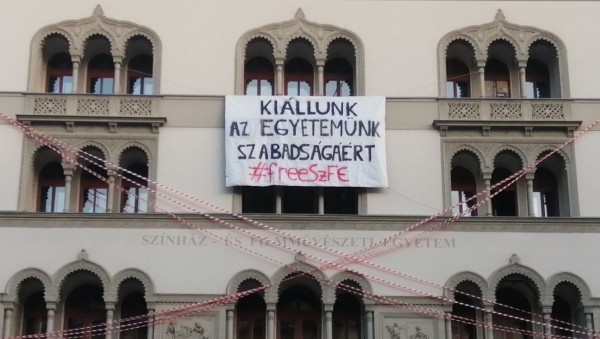The Ministry
of Interior has issued a draft bill to modify the regulation on secret
surveillance for national security purposes currently in effect.
Certain national security services and the Counter Terrorism Centre (TEK, a
special unit of the police to counter terrorism) can conduct secret
surveillance to prevent actions that are contrary to the political, economic
and defence interests of Hungary and to promote other aims specified in the act
on national security.
The present regulation is not without defects from the aspects of
fundamental rights, some of which were addressed by the European Court of Human
Rights in its judgement in the
case Szabó and Vissy v. Hungary. Eötvös Károly Policy Institute had an
important role in the case: the application was filed by two of its former
employees who were represented in the procedure by the chairman of the
Institute. The judgement, which became final in June 2016, held that the
present regulation of secret information gathering for national security
purposes violates Article 8 (the right to respect for private and family life).
The draft bill now is intended to bring the challenged law into conformity with
the requirements set forth by the ECtHR. Among others, the Strasbourg Court
pointed out that the regulation does not specify the scope of persons who can
be potentially affected by secret surveillance and there is no suitable
external control to a range of interference with private life and intrusion
into citizens’ homes. Secret surveillance is conducted by organs belonging to
the executive power but the authorisation to conduct surveillance is also the
competence of the executive (the minister) without any sufficient external,
independent control and without sufficient remedy available for persons
intercepted unlawfully.
Considering that practically anyone can be affected by secret surveillance
in Hungary, it would have been very important to have public debate on the
content of the bill. EKINT made considerable efforts to trigger debate, nevertheless, the draft bill now came out of the
blue. Mandatory social consultation in theory would ensure that all those
affected could respond to the draft bills issued by the ministries in
reasonable time. This instrument could not work here: the ministry gave only a
week for standpoints to be submitted. EKINT beat the tight deadline and
submitted the following comments, arguing that the draft bill does not meet the
minimum requirements set forth by the Strasbourg Court.
- EKINT
asks the government to ensure public and professional debate on the draft
bill which is of utmost social importance. The government should seek the
opinion of experts and civil organisations and should respond to their
comments in public.
- From the aspect of the
constitutionality of secret information gathering it is particularly
important which organ is responsible for exerting external control over
surveillance. While the Strasbourg Court recommends judicial control, the
draft bill assigns this task to the National Authority for Data Protection
and Freedom of Information without pointing out why it chose the authority
instead of the courts. EKINT asks the government to introduce judicial
control, and if it refuses to do so, it shall explain why it wishes to
divert from the regulation model pointed out by the Strasbourg
Court.
- According
to the draft bill the authority will be entitled to the ex-post review
of the ministerial authorisation for secret surveillance. The ECtHR,
however, held that without prior authorisation by the
independent organ secret surveillance can be conducted only in emergency
and in exceptional cases. EKINT, therefore, asks the government to endow
the independent organ, ideally the courts, not with ex-post but with prior
competences.
- To
ensure ex-post remedy, the draft bill introduces a new instrument: a
complaint on surveillance can be submitted to the National Authority for
Data Protection and Freedom of Information. However, the instrument in its
present form does not meet the requirements stipulated by the ECtHR and is
not suitable to protect fundamental rights. Besides demanding
judicial control, EKINT asks the government to take steps to ensure that
persons affected are informed about their interception when it no longer poses
a threat to national security, to provide transparent legal remedy
mechanisms and to review the deadlines set for the examination of
complaints.
- To
ensure predictability the draft bill attempts to determine the scope of
persons possibly affected by secret surveillance, to define the conditions
of application and to consider the principle of necessity and
proportionality. However, since these provisions leave a wide margin of
appreciation and gain real meaning in the course of the application of
law, EKINT is of the viewpoint that supervision by an independent judicial
authority is indispensable.






